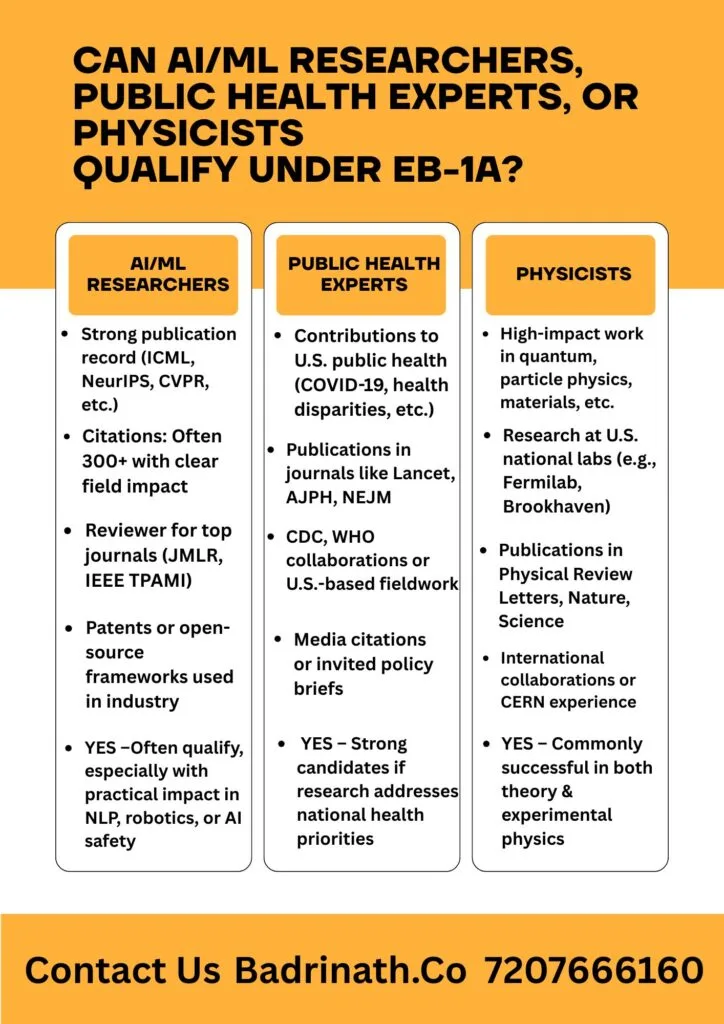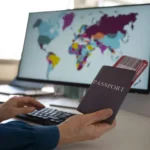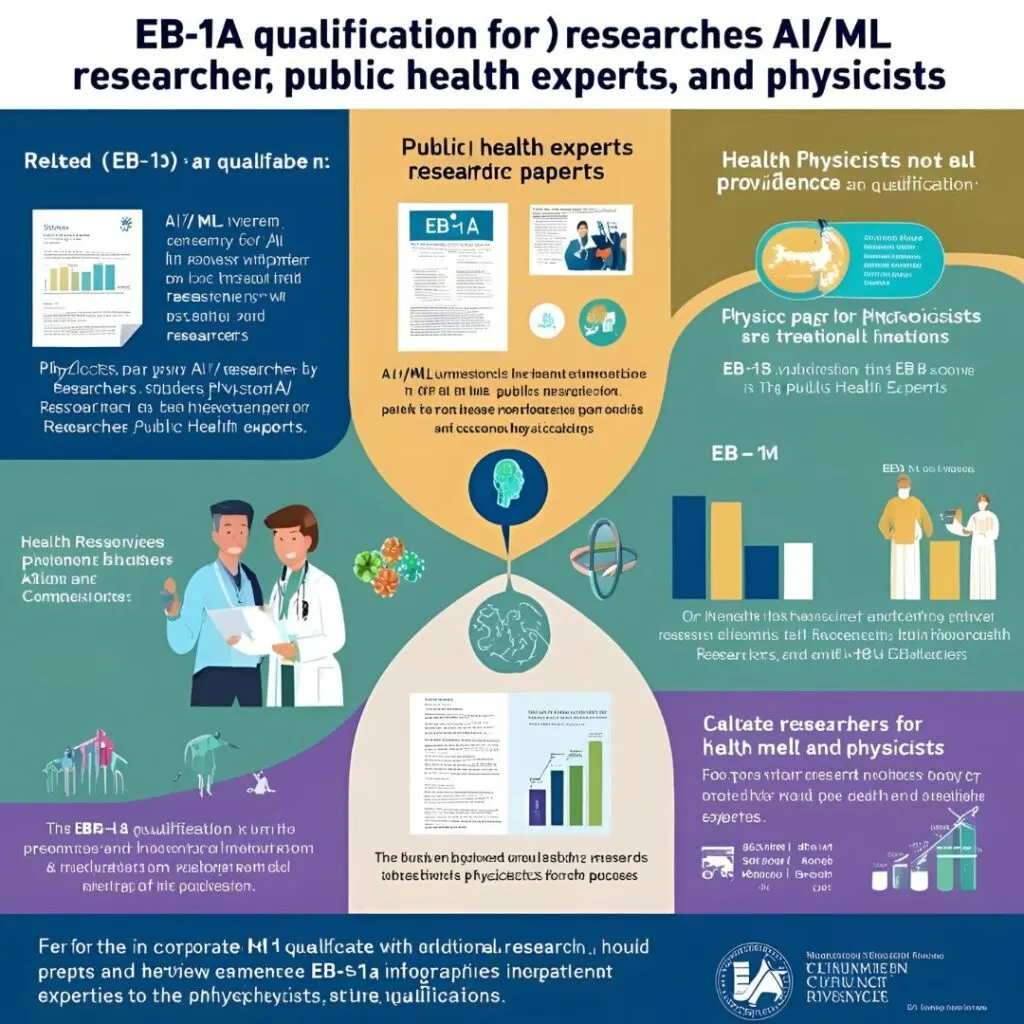Introduction
The eb1a visa category offers significant advantages for researchers with extraordinary abilities in their fields. As a self-petition option requiring no employer sponsorship, it presents an attractive path to permanent residency for specialized professionals. But can researchers in AI/ML, public health, and physics meet the stringent eb1a criteria? This article provides field-specific guidance for these professionals.

Understanding EB1 Visa Requirements for Scientists
The eb1 visa requirements include demonstrating extraordinary ability through specific evidence categories. Applicants must either show a one-time major achievement (like a Nobel Prize) or satisfy at least three of ten criteria established by USCIS. These include nationally recognized awards, membership in prestigious associations, published material about the applicant, judging others’ work, original contributions, scholarly publications, high salary, and leadership roles in distinguished organizations.
Scientists considering the eb1a should focus on demonstrating sustained national or international acclaim through documentation that aligns with their specific field’s standards of recognition.
AI/ML Researchers: Publication Impact and Industry Recognition
Generally AI/ML professionals can establish themselves as an eb1 outstanding researcher through high citation metrics and industry impact. According to recent case studies, successful AI/ML applicants typically demonstrate:
- 15-20 peer-reviewed publications in prestigious journals
- Approximately 700+ citations of their work
- Concrete evidence of practical applications of their research and also
- Letters from independent experts confirming the significance of their contributions
How many citations for eb1 success? While there’s no fixed threshold, AI/ML researchers should aim for citation counts significantly above their field’s average. The focus should be on quality and impact rather than mere quantity.
Public Health Experts: Research Implementation and Leadership
Public health professionals have unique pathways to meeting eb1a criteria through:
- Original methodological contributions to public health practices
- Evidence of research implementation in real-world settings
- Leadership roles in recognized health organizations
- Membership in prestigious public health associations and also
- Published research with demonstrable impact on health outcomes
An eb1 research scientist in public health should emphasize how their work has influenced policy decisions, improved health interventions, or advanced methodological approaches in the field.
Physicists: High-Impact Publications and Field Innovations
Physicists applying for the eb1a visa should focus on:
- Publications in high-impact journals with strong citation metrics
- Patents and innovations resulting from their research
- Peer review activities demonstrating recognition in the field
- Original contributions that have advanced theoretical or applied physics and also
- Evidence of how their work has influenced the direction of research in their specialty
Recent data shows physicists have approximately a 70% approval rate when applications are properly prepared with comprehensive evidence portfolios.
Strategic Considerations for All Fields
Regardless of specialty, successful applicants should:
- Document quality over quantity – focus on the significance of contributions
- Obtain 4+ recommendation letters from independent experts
- Consider premium processing (typically resolved in 11-13 days)
- Clearly explain the significance of achievements to non-specialists and also
- Demonstrate the broader impact of research beyond academic circles
The eb1a visa process offers researchers the freedom to work independently and change employers without additional immigration hurdles – a significant advantage for career development in dynamic fields.

Conclusion
Meeting eb1a criteria as a specialized researcher is challenging but achievable with proper documentation and strategic presentation of achievements. AI/ML researchers, public health experts, and physicists each have unique strengths they can leverage in the application process. Finally by focusing on field-specific evidence that demonstrates extraordinary ability, these professionals can successfully navigate the path to permanent residency through the EB1A category.
Keywords
- AI/ML researchers EB-1A
- The EB1A visa
- EB-1A eligibility for public health experts
- Physicist EB-1A qualifications
- Extraordinary ability visa AI/ML
- Public health expert EB-1A approval
- Physics green card EB-1A
- AI research green card USA
- EB-1A for top researchers
- EB-1A application process
- AI/ML contributions green card
Read More About the Topic
External Links
Navigating the EB-1 Visa: My Experience and Advice
Does a PhD from India qualify to apply for an EB1A/B green card?
Internal Links
Employer Sponsorship and Job Offer Requirements Under EB-1B
Advanced Degree Eligibility: How Your Master’s or PhD Qualifies You for EB-2







